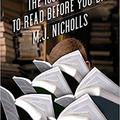Yann Martel: Life of Pi

It happens to me quite often that I come across a book at random and it suddenly exerts an irresistible force on me. I don’t think there’s anything miraculous in this, I simply mean that a good title, a nice cover or a chance sentence I happen to read when picking up the book can awaken my interest so much that I feel I cannot live without knowing what’s in between the covers. Now, I don’t really know what exactly kindled my interest in Life of Pi, as usually I’m not particularly into novels featuring animals or overtly religious themes, and I had an idea that Life of Pi was such a novel. In retrospect, I think I was hooked by nothing else but the cover which I liked so much that I did not care about the themes of the novel at all. Anyway, I became interested, and then felt I must buy the novel and read it as soon as possible. This I did.
Let me mention right here that the novel was a bit disappointing for me – though this probably has more to do with my irrationally high expectations than the quality of the book. My final disappointment was all the more bitter as the novel has an exceptionally good start which satisfies all my needs: it features multi-layered narration, jumps between past and present, a lot of delightful philosophy and an immensely likeable protagonist, Pi.
The story starts out with the narrator, a Canadian writer traveling to India in order to make his little money go a long way. There he meets an old man who tells him about the strange story of Pi Patel. When Pi was sixteen years old, he survived a shipwreck in the middle of the Pacific Ocean, and then he drifted in a lifeboat for 200 days in the company of a huge Bengal tiger and a couple of other animals until he finally arrived at the shores of Mexico. The old man suggests that the writer visit Pi, now a mature man, when he gets back to Canada and ask Pi to share the whole story with him, because this is a story which has the power to turn even the most incredulous person into a believer in God.
The narrator takes the old man’s advice and contacts Pi when back in Canada. Pi agrees to recounting his story to the writer – and from this point, we mostly read Pi’s own narration, except in a couple of short chapters where the writer shares his impressions about Pi and his family with the reader.
In the first part of the novel, we jump to and fro between present-day Canada and the India of 25 years ago, and we learn about Pi’s childhood and the origins of his unique relationship to animals and religions. Pi’s father happens to be the owner of a zoo, so Pi has the chance from his early childhood to learn how to live together with animals and how to respect the ways of animals. Apart from animals, religion is the other important driving force in Pi’s life. Though he comes from a Hindu background, as a teenager Pi discovers the beauties of Christianity and the Muslim religion as well, so he becomes a young man with three equally important religions.
This part of the book is entertaining and philosophical at the same time, and I truly enjoyed Pi’s ruminations on as diverse topics as the difficulties of running a zoo, the needs of animals, the human mistake of believing animals to be anthropomorphic; the importance of belief, or the idea that man can doubt, but no good comes out of making permanent doubt into a life-philosophy.
The thoroughly enjoyable first part of the book ends with Pi’s family deciding to close up the zoo and emigrate to Canada. The second part starts with the sinking of their ship. Pi is the only one to survive the tragedy, and from this moment on, the novel becomes something of a standard castaway story – though one spiced with a couple of dangerous animals, unbelievable difficulties and magical elements. I won’t divulge more details as I don’t want to spoil your pleasure.
Let me just add something regarding the end of the novel. As the story is told in retrospect, we know from the beginning that Pi managed to survive, so I think it comes as no surprise that after several days, Pi ends up in Mexico. And this is here that he first tells the story of his survival to two doubtful Japanese gentlemen – and suddenly everything is (or can be) seen in a different light. If we decide that we want to see things in in this new, cruel light. Anyway, as time passes, I’m beginning to feel the end to be more and more tricky and multi-faceted. And I feel that perhaps one day I will want to reread the novel so that I’ll be able able to interpret everything in at least two different ways throughout the whole novel, and not only at its end.
As a matter of fact, Life of Pi was a really good read. It was uplifting, tragic, funny, witty and dramatic at the same time, so I definitely don’t regret buying it. The only thing is that I didn’t turn into a believer simply by reading it. Of course, this is not a huge problem for me – all that happened is that now I feel that the novel promised more than it could deliver (to me). And perhaps this failure has more to do with me than with the novel itself.





